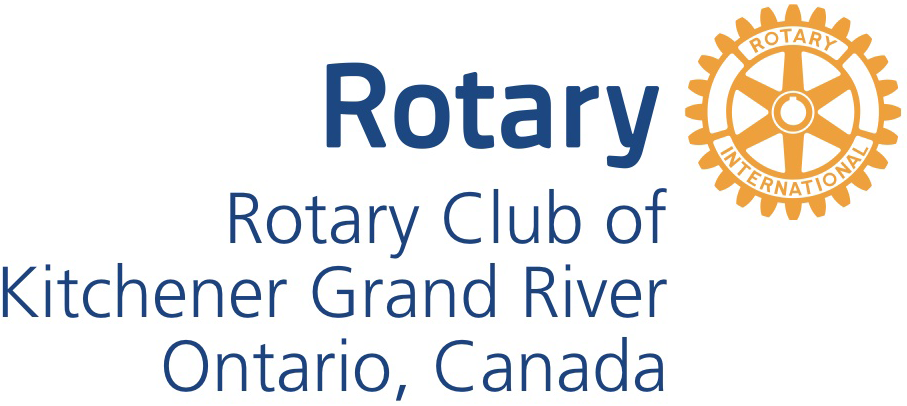Carl Codagan and Kathi Must of Reception house were the guest speakers at our January 9th meeting.

On January 9th we were joined by Carl Cadogan and Kathi Must from Reception House. Reception House is a 30-year-old not for profit located at 101 David St. Kitchener (next to Victoria Park) which supports refugees thru their arrival and integration into the Kitchener Waterloo community. Carl joined Reception House as Executive Director almost 2 years ago at a time of extreme growth in the organization. Carl is a past Rotarian living in London and commuting to Kitchener.
At the time Carl joined the agency, the Arab Spring was well underway, and demonstrations and protests had been met by violent responses from many Middle Eastern governments. This resulted in many homes being destroyed, families broken apart and lives being lost. UN Refugee camps in the Middle East were flooded with many different nationalities but the Syrians crisis seemed most serious from the Canadian perspective. With the election of the liberal government they committed to assist in the resettlement efforts to support displaced Syrian refugees. This commitment had the effect of taking the number of resettled refugees supported by Reception House in Waterloo Region from 300 per year to over 1000 per year. To compensate for this massive influx, the agency was forced to house people in several hotels in the region and provide may of their services at remote locations.
Recent statistics show that there are approximately 65 million people forced from their homes worldwide. Refugees can spend many months and perhaps years in camps in a holding pattern with a sustenance life. Many have lost all their possessions, homes and had families and friendships broken apart. A refugee arriving in Canada often has nothing, no job, no finances, no language, no social network and often times has no proper identification or information about their education or credentials.
Reception House works predominantly with Government Assisted refugees and provides temporary accommodations, programs and services to assist refugees throughout their settlement and integration process, allowing them to lead healthy and productive lives in their new community. Using staff and a large volunteer base (of 250 people), the agency provides the following programs and services:
- Immediate settlement needs- applying for government documents such as a SIN card, finding permanent accommodation and accessing the education system
- Connect clients to resources and services in our community that they need to settle into their new community
- Life skills-assists clients arriving from rural communities and refugee camps to learn to use modern amenities and live independently
- Medical-provide the opportunity to see a physician/dentist
- Youth program-provides support focussed on the specialized needs for children and youth
Generally new clients reside in the Residence House facility for approximately 3 weeks while they assess language capabilities, education needs, perform medical assessment and start the process of searching for permanent accommodation. Refugees are entitled to an allowance to pay for lodging (approx $780 family, $580 single) and food. There is focus on accessing existing resources in the community (ie. Conestoga College and YMCA for language training) and programs that connect existing resident families with refugees to assist with the building of social connections and friendships
There are many myths about the support offered to refugees.
- Refugees receive more than their fair share of financial support
It is not a free ride for refugees as they are expected to repay the cost of their transportation to Canada and other related expenses – with interest. This could amount to $2000+ per family member and this is a debt that they start their new lives with.
- Refugees want to take advantage of the system.
Unlikely as almost all come to Canada with no job and often cannot prove their prior education and vocation so are forced into low level jobs. They lack the ability to communicate, they don’t understand the new culture and are often times alone. Integration into Canada is hard work.
- Refugees are helpless and weak.
Nope, many prominent and successful Canadians had their start in Canada as refugees. They can be business owners, politicians, entertainers and even serve as Governor General.
For further information on Reception House, please see their website: http://receptionhouse.ca/

